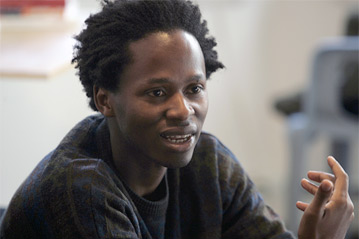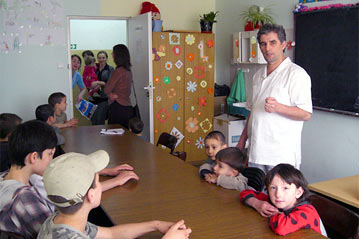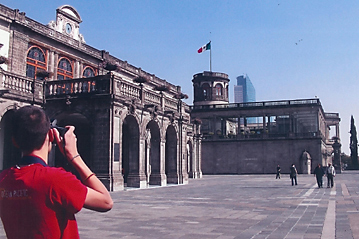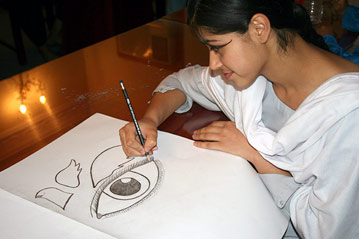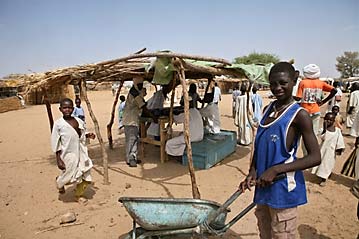Colombia's displaced youth face violence, forced recruitment in cities, warns UNHCR
Colombia's displaced youth face violence, forced recruitment in cities, warns UNHCR

GENEVA, May 17 (UNHCR) - Young displaced people in Colombia's cities are increasingly facing dangers like murders, sexual abuse and forced recruitment by armed groups, warned the UN refugee agency today as it stressed the need for urgent actions to protect and assist these vulnerable youths.
More than two decades of conflict in Colombia have uprooted over 1.5 million people within the country. Unofficial estimates put the number of internally displaced people (IDPs) at between 2 million and 3.5 million. Government figures indicate that up to 1 million of them live in the largest cities, some 400,000 of whom are teenagers and young people under the age of 29.
Recent incidents have highlighted that these young people are more vulnerable to violence than non-displaced people. The latest example was last Wednesday's murder of at least two boys, aged 14 and 16, by unknown armed men in Altos de Cazucá, an area on the outskirts of Bogota that hosts more than 20,000 IDPs. Up to seven other young men have been reported missing in the same area. Local witnesses attribute the killings and disappearances to failure to obey the curfew imposed by an irregular armed group in the area.
In some city areas, armed groups have even imposed rules over personal behaviour, targeting women in short dresses and with body piercing, and men with long hair.
In Buenaventura, 12 youngsters aged between 15 and 22 were found dead on April 21, killed by unidentified armed men. Other Colombian cities like Barranquilla, Barrancabermeja and Bucaramanga have reported similar attacks against young IDPs and other young people.
"We have also received information that, in order to exercise social control over some IDPs, members of irregular armed groups are encouraging them to take loans at extortionate daily interest rates. If they fail to repay the loans or the interest, they or their families are subjected to all kinds of abuse, including sexual abuse," UNHCR spokeswoman Jennifer Pagonis told reporters in Geneva on Tuesday.
She added that UNHCR has also received reports that displaced young men in the Urabá, Caribbean Coast, Middle Magdalena and other regions have been forcibly recruited by irregular armed groups.
A recent study noted that only one in eight IDP students have returned to school after being displaced. IDP girls are more vulnerable to sexual exploitation and teenage pregnancy than other teenagers. In Colombia, 30 percent of IDP women under 20 have at least one child, compared to 19 percent of non-displaced women.
"It is very important that we continue to work with the authorities and civil society to ensure that IDPs, particularly young people, receive the protection and assistance they deserve, thus avoiding a situation in which they become easy prey for criminal gangs or irregular armed groups," said Pagonis. "Policies to guarantee their access to school, prevent their recruitment by these groups and ensure their physical safety are urgently needed."
Since 1997, the UN refugee agency has been working to protect the rights of internally displaced people in Colombia through documentation campaigns, human rights training, pedagogy projects and initiatives to encourage the integration of young IDPs into host communities, among other projects.

